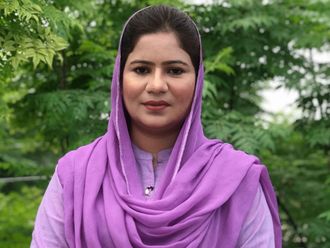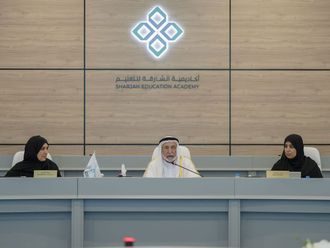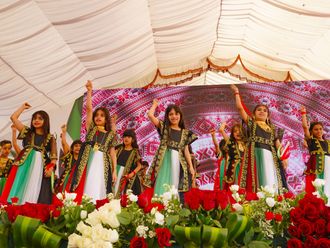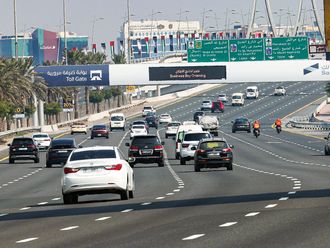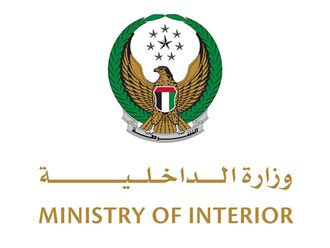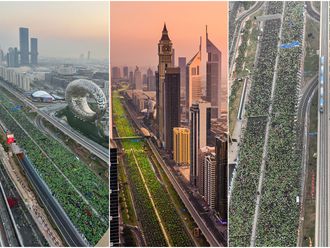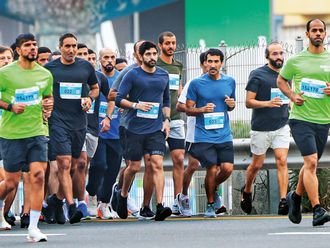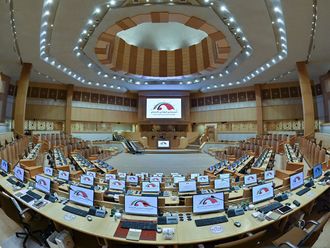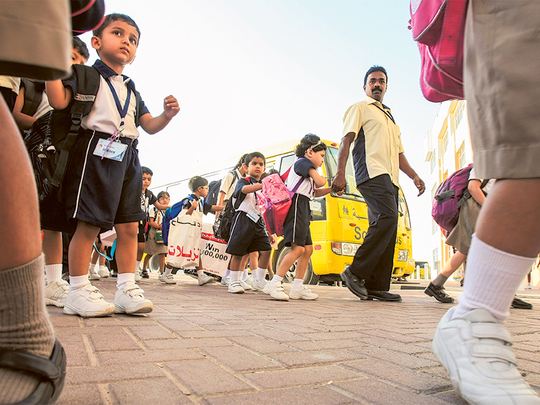
Dubai: A total of 27 new private schools offering more than 63,000 seats will open in Dubai by the next academic year, 2016-17, the Knowledge and Human Development Authority (KHDA) announced.
The KHDA revealed that by 2017, there will be more than 196 private schools in Dubai with a capacity to teach more than 341,000 students.
This is an increase from the current 169 schools, which are home to 255,208 students according to a 2014-15 KHDA report.
Having more seats will solve any possible seat shortages parents may face as well as fulfil the country’s goal of having 360,000 seats by 2020.
This will also benefit parents who will be given more options to choose the best education for their children.
The positive growth of Dubai’s private school sector has been an ongoing trend.
In the academic years 2011-2012 and 2013-2014, 18 new private schools provided some 19,000 seats and in the last academic year alone parents benefited from 11 new private schools opening their doors with a capacity of more than 25,000 seats.
Currently, 87 per cent of the total seats available in Dubai’s private schools are occupied by students. Around 35,000 of these students travel from the neighbouring emirates due to the improved facilities offered by Dubai private schools.
“There will be an expected total of 27 new private schools by September 2016, bringing the total estimated capacity to 63,000 seats,” said Chief of Regulations and Permits Commission Mohammad Ahmad Darwish.
The KHDA said the successful bid to host Expo 2020, coupled with the growing population of the city, has brought investor confidence and, currently, the KHDA is reviewing more than 60 applications for the establishment of new private schools in Dubai.
“This creates competitiveness among the new private schools within Dubai. Private schools then present special packages and promotional offers to attract parents of new and existing students and to occupy the highest rate of seats available. The offers include attractive instalment packages and discounts for families which have more than one child in the same school. As a result, parents benefit from the competition created among private schools in Dubai,” Darwish said.
Executive Director of Education Development Kalthoom Al Beloushi explained that this will help in reaching the emirate’s goal of having 360,000 seats by 2020. Furthermore, the new private schools have contributed to private education by providing a variety and range of services for outstanding quality education.
“In order to establish the best available educational opportunities for Dubai’s private education sector, we used a variety of channels to communicate with more than 200 investors and education providers inside and outside the UAE. This has helped in obtaining international school branches within Dubai and, once again, adds to the choice of curriculums for parents to choose from,” said Kalthoom.
In fact, this year sees the addition of a school that will offer a Swiss qualification to the sector, confirmation that KHDA continues to meet the demands of all students by ensuring there are multiple options for Emirati families and expats alike.
Khalthoom added: “We also encourage the good and outstanding schools to expand within the emirate by opening new branches, at the same time attracting good-quality schools from other emirates to establish branches in Dubai.”
This diversification of educational opportunities to students in Dubai results in strong and competitive investor interest and strikes a unique balance to enable the sector to provide an outstanding quality of education to students.


